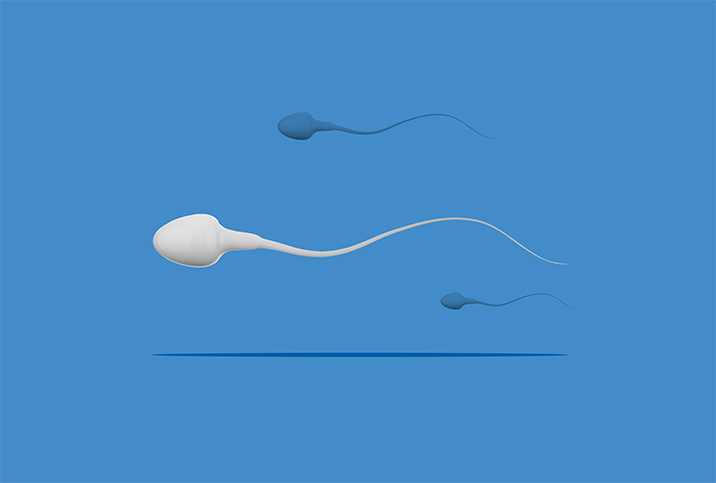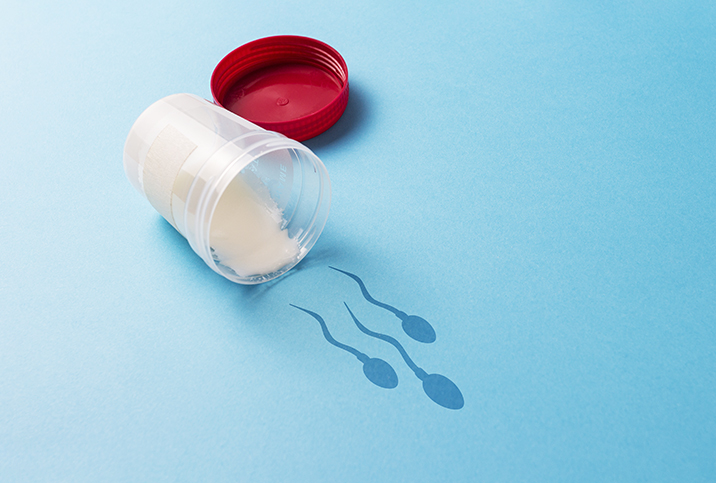Physically Demanding Jobs Are Linked to Enhanced Male Fertility

Sperm counts and concentrations—both key factors in male fertility—have declined around the world over the past half-century. Mounting evidence suggests the global downfall is accelerating.
The causes of the downswing in male fertility remain unclear, but research continues to suggest that exposure to manmade chemicals such as phthalates diminishes sperm count and quality.
Lifestyle factors such as daily activity levels may also play an important role, according to the Environment and Reproductive Health (EARTH) Study, a collaboration between the Harvard T.H. Chan School of Public Health and the Massachusetts General Hospital Fertility Center that investigates the impact of environment and lifestyle on fertility.
The EARTH research team recently published a study that suggests males who lift heavy objects at work have higher sperm counts than men whose work is sedentary.
"We already know that exercise is associated with multiple health benefits in humans, including those observed on reproductive health," said Lidia Mínguez-Alarcón, Ph.D., M.P.H., a senior research scientist at the Chan school and an EARTH researcher, in a press release. "But few studies have looked at how occupational factors can contribute to these benefits. What these new findings suggest is that physical activity during work may also be associated with significant improvement in men's reproductive potential."
About the research
As part of the EARTH study, researchers collected data from more than 1,500 male and female participants who enrolled between 2005 and 2019. For this recent subset of the study, the researchers focused on data from a smaller group of study participants: 377 males seeking fertility treatment with their partners.
The researchers found men who reported regularly lifting or moving heavy objects at work had 46 percent higher sperm concentration and 44 percent higher total sperm count compared with men who said they never lifted or moved heavy objects at their job.
They also found males who had physically demanding jobs had higher levels of testosterone and estrogen (the sex hormone associated with the female reproductive organs) compared with those in sedentary professions.
"Contrary to what some people remember from biology class, 'male' and 'female' hormones are found in both sexes but in different amounts," Mínguez-Alarcón said in the release. "In this case, we hypothesize that excess testosterone is being converted into estrogen, which is a known way for the body to keep normal levels of both hormones."
The researchers noted this study looks only at men in couples seeking fertility treatments.
"Confirmation of these findings in other nonfertility clinic study populations is warranted," they wrote.
Lifestyle factors influence male fertility
Regular physical activity is just one of the factors—both beyond and within our control—that can influence male fertility, according to Barrett Cowan, M.D., a reproductive urologist in Colorado and a co-founder of Posterity Health.
"We cannot control genetic factors or developmental issues, such as having been born with undescended testicles, but there are many things that we can do as individuals to impact our fertility status," said Cowan, who was not involved in the study.
Certain specific lifestyle behaviors can play a major role in a person's fertility status.
"Having an abnormal semen analysis can reflect the overall health status of an individual, so it's important to have a healthy lifestyle, not just for your own health but also to improve your chances of becoming a father," Cowan said. "Typically speaking, a healthy body means healthy sperm."
Regular exercise and staying in shape are good for your fertility, as are healthy food intake and stress reduction practices, Cowan confirmed. However, he noted that exercise in excess—for example, long bike rides or training for a marathon—could potentially harm sperm production. Studies have linked intense training to reduced sperm concentration and motility.
Other habits that can negatively impact fertility include being overweight and excessive marijuana and alcohol intake, as well as any tobacco use, Cowan added.
Don't let your worries about fertility fester. Visit your doctor. Don't have a doctor you see regularly? You should. Fortunately, telehealth makes it easy to connect with a professional who can answer your questions and evaluate your situation. Many physicians offer video visits, which are a good way to be seen quickly since a lot of them have same-day appointments. Giddy Telehealth is an easy-to-use online portal that provides access to hundreds of healthcare professionals whose expertise covers the full scope of medical care.


















